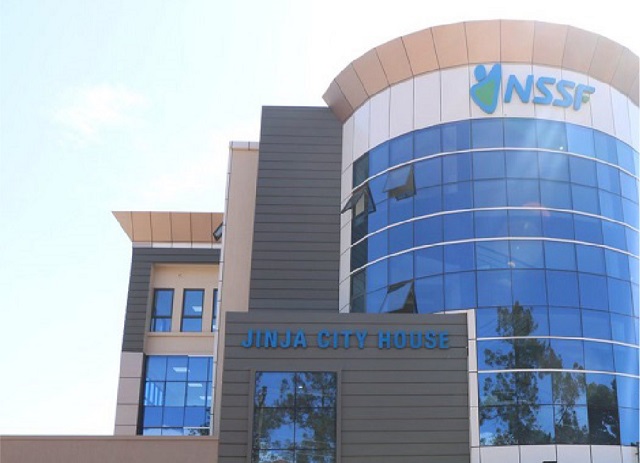
Its comprehensive income declined during the one year coronavirus pandemic crisis, executives say
Kampala, Uganda | JULIUS BUSINGE | The National Social Security Fund size grew by 16% from Shs12.66trillion in March 2020 to Shs14.62trillion in March 2021 amidst the coronavirus pandemic.
The Fund’s Managing Director, Richard Byarugaba, and Chief Financial Officer, Stevens Mwanje said, the growth in assets, during the one year COVID-19 crisis, resulted from the continued growth in investment assets and collections.
The Fund’s interest income also increased by 15% due to better returns on the fixed income assets during the same period under review.
However, comprehensive income declined to Shs31.1billion at the end of March 2021, compared to Shs35.2billion recorded at the end of March 2020. This was attributed to the Shs207bn foreign exchange loss on investments.
Cost of administration however improved to 1.02% mainly on account of better cost management and low expenses due to the pandemic.
Some of the expenses had to be deferred, according to the Fund’s executives.
As at March 31, 2021, member’s contributions received amounted to Shs965bn, which was 1.1% below Shs975billion as at the same period last year, attributed to the decline in the mandatory contributions due to the coronavirus pandemic.
Benefits paid out amounted to Shs557billion, representing 29.6% above the Shs430billion in March 2020.
Out of those qualifying members that were paid, 98% are living members and 2% survivor benefit beneficiaries.
The Fund has maintained its market leadership position in the East Africa region with its diversified investment portfolio and good performance of its investments.
Despite the poor performance of East African Equities, Byarugaba said, the Fund was able to give members a favourable and competitive return on their savings equivalent to 10.75% interest, representing 4.55% points above a ten year inflation. Benefits processing took an average of 10 days as at the end of March 2021.
“From a financial perspective, we anticipate Covid-19 to have a relatively minimal value eroding impact on the Fund because of the Fund’s robust investment strategy,” Byarugaba said.
However, he said, more impact will be felt on the contributions side especially with stress on the employers.
“The Fund remains in a better position to weather the storm because of our largely long term investments’ strategy, mainly in long term fixed income investments,” he said.
Progress on key projects
Executives said, the Citadel Mbuya project, which was officially launched in December 2019 had its bookings reach 75%, out of which 48% of all units were fully paid for, and cash commitments of varying amounts were up to 60%. The construction of Pension Towers is ongoing, estimated at 50%.
Management says the project, whose construction started in 2008, but stalled for some reasons including court battles, is likely to be completed in February 2022.
Meanwhile, construction for houses of all types in Lubowa is ongoing and currently estimated at 82%, with its completion date being July 2021.
For the Temangalo housing project, its design commenced in November 2020 and construction start schedule is July 2021. Its completion date is November 2023. For the Kyanja housing project, the estimated completion date is January 2022.
For the NSSF Mbale City House, the project design is scheduled to start before end of this month, and construction is estimated to end in May 2023.
 The Independent Uganda: You get the Truth we Pay the Price
The Independent Uganda: You get the Truth we Pay the Price





